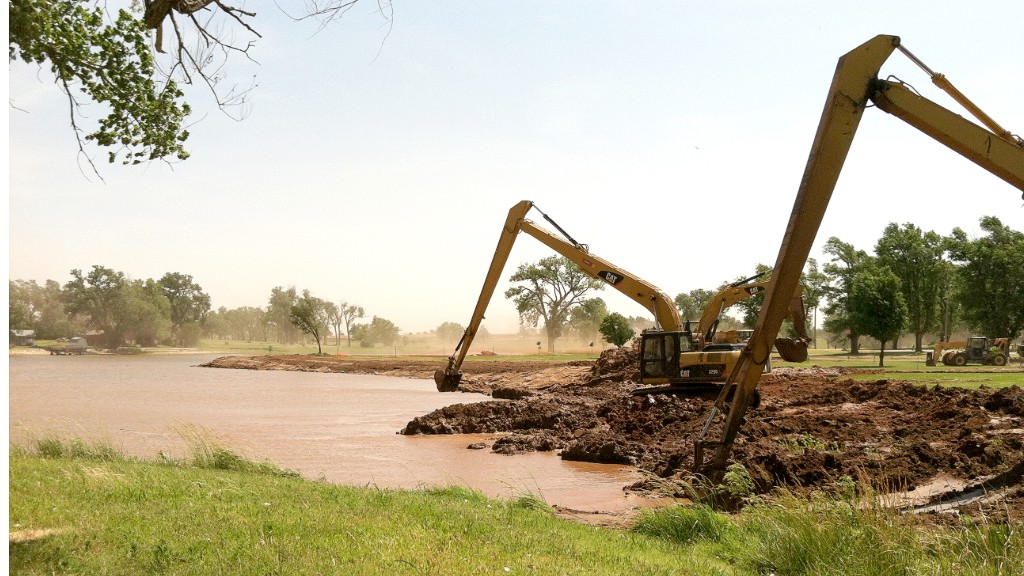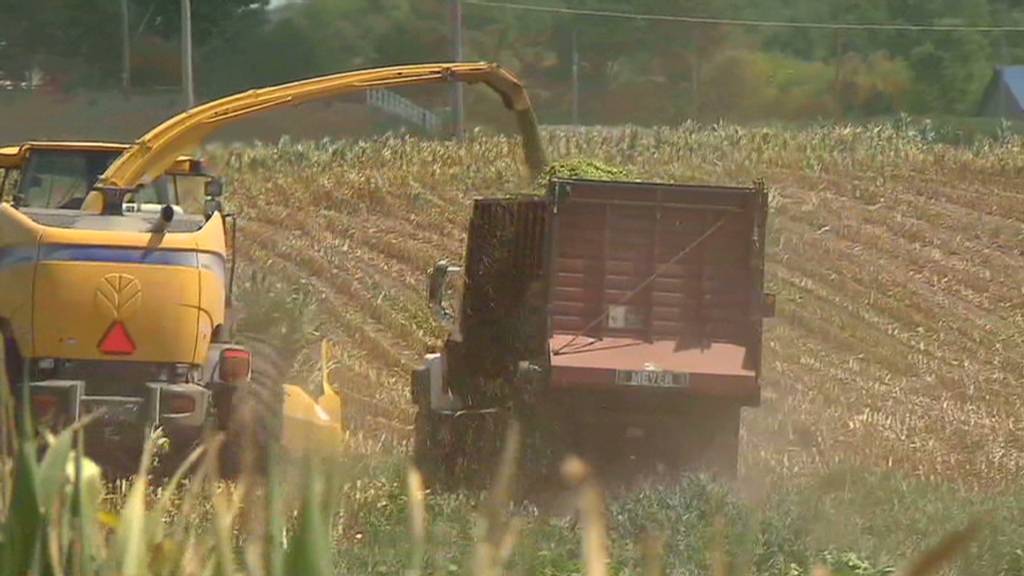
Oil companies drilling in the drought-ridden fields of southern Kansas are taking desperate measures to get the water they need to tap into the state's oil reserves.
Huge amounts of water are required to extract oil, especially when companies use hydraulic fracturing, or fracking, which requires millions of gallons of water to crack the shale rock and bring oil to the surface. But now that the entire state is in emergency drought status, with only 1.19 inches of rainfall last month -- the 10th driest July on record -- unprecedented water shortages are making it difficult for drillers to get the water they need.
Some companies are paying farmers for any remaining water they have left in their ponds, drilling their own water wells, digging ponds next to streams or trucking in water from as far away as Pennsylvania -- all of which is costing them a handsome sum of money and time.
"This has been the most unique challenge I've run into in a while," said Ruben Alba, partner at Petro River Oil, one of the smaller oil companies that has entered the oil play in Kansas over the past year.
Desperate for water: Petro River Oil had plans to frack and drill its first oil well last month, but much of the water supply the company intended to use was cut off when the state limited access to certain streams this summer due to the drought.
Alba's company drilled its own water well, but it wasn't pumping enough water, so he hired a company to truck water in, delaying the job by about six weeks. By the time drilling was complete, the company had paid nearly triple the amount it originally budgeted.
Related: America's Biggest Boomtowns
To avoid running into this problem again, Alba turned to local farmers and ranchers, asking them to sell his company water from their existing ponds or let him drill water wells on their land. But the whole process was taking up so much time that he hired a company called Select Energy to do the legwork for him.
Select Energy sources water for oil companies in drilling hotspots across the country, and some landowners can make between $70,000 and $85,000 over the course of a year and a half by selling the water in their ponds to the company, said Mike Wilson, a regional sales manager at Select Energy.
But many landowners aren't as willing to give up their water now that supplies have become so scarce.
"Farmers are scared about the water supply, too," said Jeff Gordon, CEO of Texas Coastal Energy Co., a small oil company that began exploring in Kansas last year. "They are now saying, 'We need to save our water for our crop and our livestock.' "
Related: Farmers hit the jackpot in Kansas oil boom
With two oil wells slated to be drilled in the next month, Texas Coastal is considering drilling its own water well at a cost of between $10,000 and $25,000.
Otherwise, it would have to pay to truck water in from out of state or buy it from local farmers and ranchers. Either method could add 3% to 4% to the overall cost of drilling an oil well. Depending on the size of the well and the amount of water required, that could add up to between $20,000 and $200,000.
To the oil companies, it's worth it. With oil prices hovering around $90 a barrel and the cost to produce a barrel of oil only around $15, the profits are huge, said Gordon, whose company is still aggressively leasing mineral rights, which gives it rights to drill on certain properties.
If the drought worsens or persists for too much longer, however, it could threaten the oil boom, particularly among the smaller drilling companies that can't afford the added costs and delays, he said.
Related: Boom chasers, next stop Kansas
"That can cripple a drilling company, as lack of water can basically suspend operations," he said.
Petro River's Alba said the drought won't affect his current drilling plans, but he will carefully assess water availability before expanding into other areas of Kansas.
Scrambling to get the oil companies to stay: Mike Lanie, the economic development director in Harper County, which is at the center of the oil boom, is determined to keep oil companies from pulling out.

Lanie and some other local entrepreneurs in the area have even been digging ponds next to streams. Lanie's brother is digging a 300-foot wide, 15-foot deep lake on the swampy area of his property to provide water to Select Energy, which will in turn sell it to oil companies.
Select Energy is also bringing in water-hauling trucks from Pennsylvania so that oil companies can begin hauling water from out of state if they need to -- a more expensive proposition because of fuel and labor costs.
In the end, Lanie expects the oil companies will do what it takes to get the oil they came for.
"From what I'm told, they don't plan on stopping," said Lanie. "They'll even use sewer lagoons or they'll haul it in from out of state if they have to, to keep those wells going."


